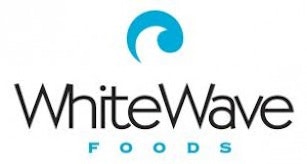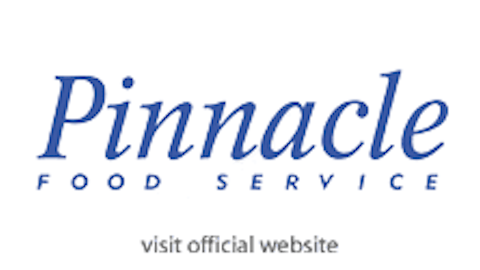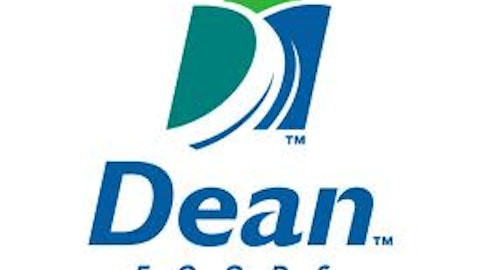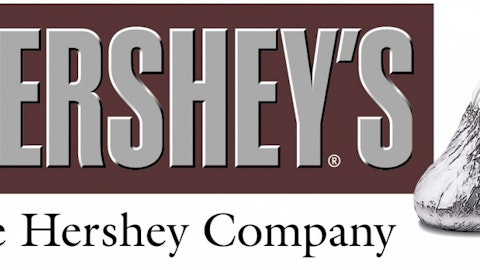On May 23, 2013, Dean Foods Co (NYSE:DF) completed its long-awaited spin-off of its plant foods division. Known asThe WhiteWave Foods Co (NYSE:WWAV), the company has attracted the attention of professional investors for a variety of reasons. To make matters even more interesting, WhiteWave wasted no time in announcing a fairly large share repurchase authorization that could continue for several quarters. Valued at $150 million, the program could result in the repurchase and cancellation of nearly 5% of the company’s total share float.

WhiteWave, Dean Foods and the competition
The WhiteWave Foods Co (NYSE:WWAV) and Dean Foods Co (NYSE:DF) operate in a competitive industry that is dominated by a few global conglomerates. Accordingly, many of their closest competitors are significantly larger and enjoy more impressive global distribution networks. Deerfield, Illinois-based Mondelez International Inc (NASDAQ:MDLZ) is representative of this type of competitor.
The discrepancies between Dean, WhiteWave, and Mondelez are immediately apparent. For starters, Mondelez has a market capitalization of nearly $56 billion. This compares with a valuation of just under $2 billion for Dean and a figure of about $3.2 billion for WhiteWave. Mondelez is also more profitable than either of its smaller competitors. Its profit margin of about 7.4% comes on the strength of $35 billion in revenue and $1.8 billion in after-tax earnings. By comparison, Dean Foods managed a margin of about 5.4% on $11.5 billion in revenue. The WhiteWave Foods Co (NYSE:WWAV) turned in a 4.5% profit on total revenue of just under $2.4 billion.
Mondelez does have a substantial amount of debt: Its $18.6 billion obligation sheet dwarfs its cash hoard of $2.9 billion. Fortunately, it can rely on operating cash flow of about $4.4 billion. Dean Foods Co (NYSE:DF) has an even more troubling debt heap. With nearly $1.9 billion in debt and under $80 million in cash, the company will need to do some work to repair its balance sheet. For its part, WhiteWave has debt of $806.5 million and about $57 million in cash. Its operating cash flow of about $180 million is not particularly impressive.
How the spin-off happened
As is often the case in such transactions, the precise terms of this stock-for-stock spin-off were not disclosed until a few days before the date of record. Moreover, this transaction was more complicated than many other spin-offs. Since it involved two classes of stock, it required two separate distribution ratios. In the end, Dean distributed a total of 47.7 million Class A WhiteWave shares and 67.9 million Class B The WhiteWave Foods Co (NYSE:WWAV) shares.
As is customary, fractional shares were sold on the open market and distributed as proportional cash payments to the company’s shareholders. In addition, each WhiteWave Class B issue was assigned 10 shareholder votes on all matters related to the company’s board of directors. On all other matters, each Class B share was given just one vote. In the final estimation, each Dean Foods Co (NYSE:DF) share produced .25544448 Class A share and .36380189 Class B share.
Share repurchase authorization
WhiteWave’s $150 million share repurchase authorization is slated to begin immediately and continue indefinitely. According to the release that announced the plan, it is primarily designed to offset the inevitable stock-price dilution that the company’s new executive-compensation plans will engender. However, The WhiteWave Foods Co (NYSE:WWAV)’s management team has stressed that the program will also permit it to make “opportunistic” purchases at attractive entry points. At current prices, a fully realized program could result in the cancellation of more than 8 million WhiteWave shares.
How is it funded?
WhiteWave has not pointed to a specific funding source for this buyback program. Given its tenuous cash reserves and mediocre cash flow, investors must assume that the company will finance at least some of the program with new debt issues. This could exacerbate an already shaky financial situation. At the same time, it is important to note that WhiteWave is not necessarily in bad shape relative to its peers. It seems that many big-name food distributors are fairly deep in debt.
Long-term outlook: Which is the better pick?
WhiteWave has a well-earned reputation as a fast-growing company in a rather boring industry. However, this structural fact might not translate into an appreciating stock price or outsize earnings. Indeed, the company’s debt load and narrow profit margins could spell trouble down the road. For investors who wish to stick with a known quantity, Dean Foods Co (NYSE:DF) may be a more attractive play. Those who prefer the safety of established conglomerates might be more inclined to go for Mondelez instead.
In sum, The WhiteWave Foods Co (NYSE:WWAV) now trades as a separate company and promises to return capital to shareholders via a share repurchase program. However, the company is not particularly well-capitalized and may need to issue new debt to fund the buybacks. Investors who find this arrangement too risky for their liking may wish to consider avoiding the stock altogether or opening a tightly controlled short position to take advantage of near-term volatility. As always, due diligence is essential.
Mike Thiessen has no position in any stocks mentioned. The Motley Fool owns shares of Dean Foods Company and WhiteWave Foods.
The article After Spinning-Off From Dean Foods, WhiteWave Looks Forward to Share Repurchases originally appeared on Fool.com.
Copyright © 1995 – 2013 The Motley Fool, LLC. All rights reserved. The Motley Fool has a disclosure policy.



